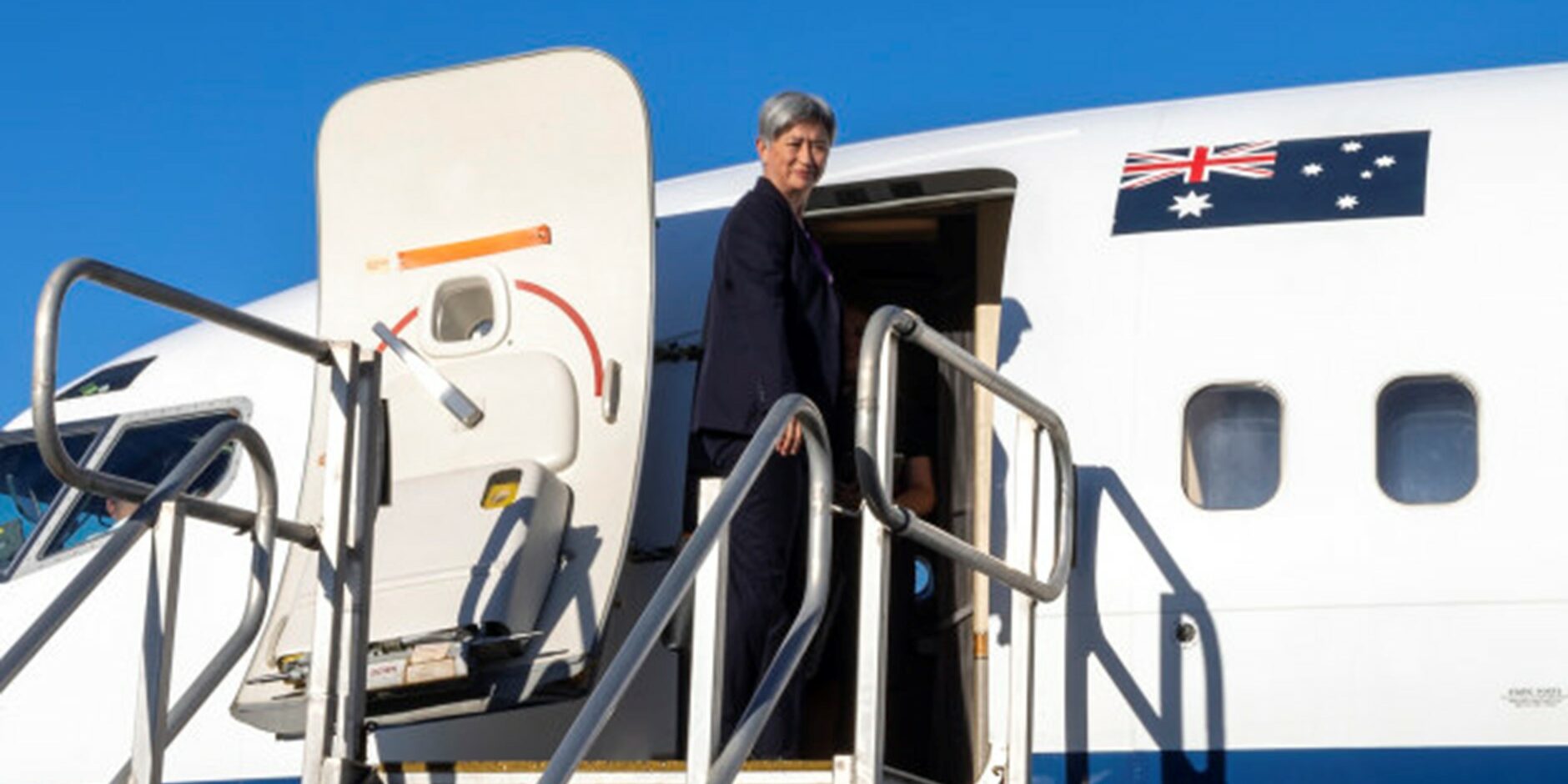Article published in the Opinion page of the Australian Financial Review, 17 January 2024

Photo accompanied the published article.
Diplomacy involves listening, learning, empathy, and articulating the national interest, underpinned by core values.
Foreign Minister Penny Wong’s visit this week to Jordan, Israel, the West Bank, and the UAE, is likely to present her with bewilderment and confusion on Middle East policy challenges.
What is the point of this trip?
Success requires clear, realistic objectives. Senator Wong’s UAE visit is focused on trade negotiations on a Comprehensive Economic Partnership Agreement. That is clear. The remainder is less so.
Senator Wong is an experienced minister. She will need to be nimble to adapt to the utterly changed strategic landscape. Cliché-like prognostications will go down like a Hamas balloon. It will be a difficult trip with domestic and international audiences keeping a close watch.
Israel’s unavoidable task is to eradicate Hamas in Gaza, so that October 7’s horrors can never be repeated, as Hamas leaders openly threaten. The collateral and regrettable damage to innocent Gazans and their infrastructure is colossal.
Israel understands that if Hamas is permitted to pause and regroup, it will only embolden them and Iran’s proxies to wipe Israel from the face of the earth.
Australia is a respected middle power. East of Israel we are its strongest, most consistent, and significant friend. The Albanese government, in keeping with previous Australian governments, votes more with Israel than does India or Japan in the United Nations.
Australia’s vote last month on a UN resolution calling for a ceasefire upset Israel and many Australians, notwithstanding our failed amendment to explicitly condemn Hamas.
Wong has drawn criticism for not scheduling a visit to the kibbutzim in Southern Israel where Hamas’ rape, torture, kidnapping, and murdering depravity during a ceasefire kicked off this war. But she is due to meet with families of kidnap victims.
The explosion of global antisemitism in the Western world is one of the most shocking consequences of the October 7 attacks. Shameful shouts of “gas the Jews” on the steps of the Sydney Opera House as police looked on impassively, and the standing down of the captain of South Africa’s under-19 cricket squad by the South African Cricket Board, in effect because he is Jewish, are but two terrible examples. Then there are the universities.
Why not take the opportunity to announce on this trip, the appointment of an Australian envoy to fight antisemitism? And one on Islamophobia?
It is the ongoing war that will dominate Wong’s discussions. Change is needed in both Israel and Palestine or the region is condemned to the current instability. In private, Wong should tell Prime Minister Netanyahu, as a friend, that the presence in Israel’s government of any minister speculating about dropping an atomic bomb, displacing Gaza’s population through migration, or the return of settlements there, undermines Israel’s good standing.
As a champion of eventual Palestinian statehood, she should firmly ask Palestinian Authority President Mahmoud Abbas what plans he has for transitioning to new leadership. The PA is weak and corrupt. New leadership is desperately needed.
Australia can contribute to aid projects in health, economic development, ecology, and other areas that maximise the development of a sustainable Palestinian economy. There is scope to engage with joint Palestinian and Israeli NGOs already co-operating.
A month ago, one of Israel’s greatest intellects, Shlomo Avineri, left-wing scholar and former head of Israel’s Ministry of Foreign Affairs, confidant of assassinated Prime Minister Yitzhak Rabin, died.
In the left-liberal paper Haaretz he once wrote: “Most Israelis view the conflict as a struggle between two national movements: the Jewish national movement – Zionism – and the Palestinian national movement… The internal logic of such a view led …to what is called the two-state solution.”
He went on: “Unfortunately, this is an illusion…” if the right of the Jewish people to a homeland is denied.
Quoting chapter and verse from Palestinian Arabic publications, he explains that Israel is portrayed as if the country was another Algeria, with Israelis like the French bound to depart.
How can an enduring agreement be possible with this mindset? The recent Gaza experience deepens those forebodings. If the Palestinians had unfettered control of the West Bank, sooner or later, would the territory become another Hamastan?
We should however continue to be prepared to be surprised by the potential of catastrophe to produce unexpected outcomes.
In retrospect, an optimist would say Israel in 1973 was surprised and did badly in the first two days of the Yom Kippur War, before defeating the Egyptian, Syrian, and allied armies. That was the then nadir of neighbourly relations.
Yet, on 20 November 1977, Egypt’s President Sadat addressed the Knesset; in 1978 came the Camp David Accords; on 26 March 1979 Egypt and Israel signed a peace treaty; the Sinai was transferred back to Egypt.
Sadat was assassinated in 1981, but Israel handed back to Egypt all the territory it lost through war.
Expect the unexpected.







